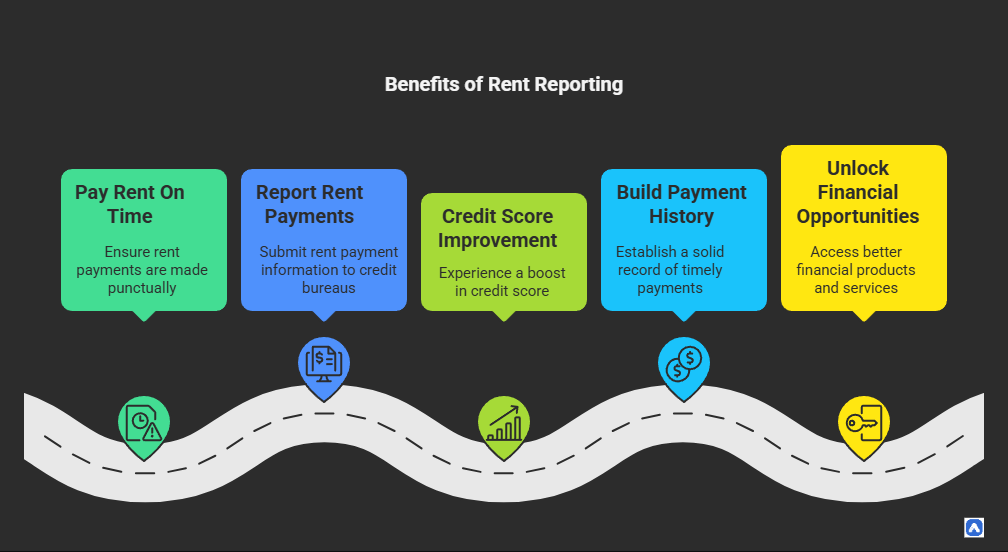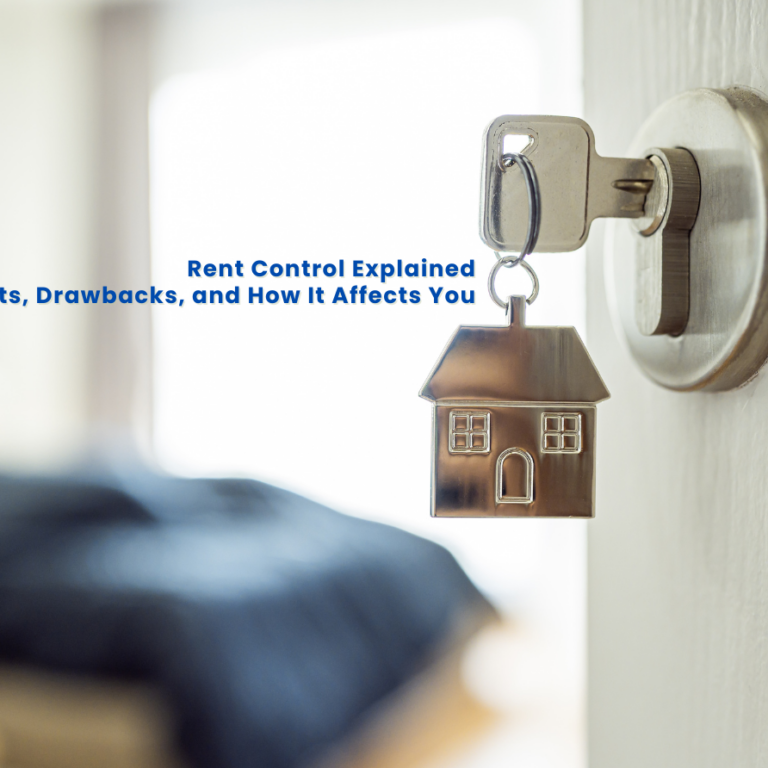What Is Rent Reporting? Turn Your Rent Into Credit Success
Rent Reporting: The Credit Building Tool Renters Have Been Missing
Every month, millions of responsible renters make their rent payments on time—often prioritizing this expense over others to keep up with their biggest financial obligation. It’s ironic, though, that while rent is typically someone’s largest monthly bill, these consistent payments usually don’t help build their credit history. Homeowners, on the other hand, experience something very different. Every mortgage payment they make is automatically reported to credit bureaus, steadily strengthening their credit profiles over time. This creates a frustrating double standard: homeowners are rewarded for their housing payments, while renters—who are often showing the same level of financial responsibility—don’t see any credit benefit, despite making equally important contributions.
The reason for this disparity lies in how the system is set up. Mortgage companies have automatic reporting built into their processes, but most landlords and property managers simply don’t report rent payments to credit agencies. It’s not that rent isn’t important—it’s just that the system wasn’t designed to track it. The good news? Innovative rent reporting services are finally stepping in to change this outdated dynamic. By bridging the gap between rental payments and credit reporting, these services are helping renters get the credit they’ve rightfully earned all along. What was once an invisible expense can now become a powerful tool for building financial health.
What Is Rent Reporting?
Rent reporting is the process of adding your on-time rent payments to your credit history. Since most landlords and property managers don’t report rent to credit bureaus, renters miss out on a major opportunity to build credit. Rent reporting services bridge this gap by verifying and submitting your payments to credit agencies.
Think of it like retroactively getting credit for all those years you’ve been financially responsible with your largest monthly expense. These services are finally fixing what’s essentially been a blind spot in the credit reporting system – one that’s unfairly penalized renters compared to homeowners for decades.
The best part? This isn’t some obscure financial trick. It’s simply making sure your existing good behavior actually counts toward building your financial reputation, just like other important bills already do.
Why Rent Usually Doesn’t Help Your Credit
By default, rent payments aren’t included in your credit reports. Credit bureaus rely on lenders, credit card companies, and other financial institutions to report payment history—but most landlords don’t participate in this system. That means even if you’ve paid rent on time for years, it may not show up on your credit file.
How Does Rent Reporting Work?
Rent reporting services track your rent payments and send them to credit bureaus. Some services work directly with landlords, while others allow renters to self-report by linking bank accounts or uploading payment receipts. Once reported, your rent payments appear as a tradeline (like a loan or credit card) on your credit report.
How Does Self Rent Reporting Work?
If your landlord doesn’t report rent, you can use a self-reporting service. These platforms verify your payments (via bank statements or lease agreements) and submit them to credit bureaus on your behalf.
Which Credit Bureaus Accept Rent Payments?
Not all credit bureaus treat rent payments the same:
- Experian includes rent payments in its standard credit reports.
- Equifax and TransUnion may accept rent data, but not all lenders consider it when making credit decisions.
Since scoring models vary, rent reporting may help more with some credit checks (like rental applications) than others (like mortgage approvals).
Top Benefits of Rent Reporting

💸 Turn Your Biggest Expense Into Credit Gold
Stop letting your rent payments go to waste. Now, every on-time payment works for you, transforming your largest monthly bill into a powerful credit-building tool.
📈 See Real Score Improvements Fast
Many users report credit score jumps of 40-100+ points within months—just for paying rent like you always do. That’s free credit building with zero extra effort.
📅 Build a Bulletproof Payment History
Each reported rent payment adds another positive mark to your credit file, creating the kind of robust financial profile lenders love to see.
🔑 Unlock Financial Opportunities
Better scores mean:
• Higher approval odds for apartments, cars, and loans
• Lower interest rates that save you thousands
• Premium credit cards with better rewards
🏦 Make Rent Your Secret Financial Weapon
While others just pay their landlord, you’ll be strategically building wealth—using money you were already spending to open doors to your financial future.
This isn’t magic—it’s simply getting credit where credit is due. Join Now AxcessRent
Does Rent Reporting Help Credit Score?
Yes, rent reporting can help your credit score, especially if you have a limited credit history. On-time payments add positive tradelines, which can boost your score over time.
3 Ways Rent Reporting Helps Your Credit
✅ Builds a Flawless Payment History (35% of your FICO® Score!)
Every on-time rent payment stamps your credit report with proof of reliability. Think of it like a loyalty program—but instead of points, you earn credit trust with lenders!
✅ Adds a Powerful Tradeline (15% of your score!)
Rent reporting turns your lease into a credit-building asset. If you have a “thin file” (few accounts), this can be a game-changer—giving your score the depth it needs to grow.
✅ Shows You Can Handle Big Payments (Even If It Doesn’t Affect Utilization)
While rent isn’t debt, consistent on-time payments prove you manage major financial commitments—something lenders love to see!
For those with little or no credit, rent reporting can lead to a 40–100-point increase. Those with established credit may see a smaller impact, but consistent payments still help.
Who Should Use Rent Reporting?
Rent reporting is especially valuable for:
- First-time renters with no credit history
- People rebuilding credit after financial setbacks
- Young adults establishing credit for the first time
- Anyone with a “thin” credit file (few accounts)
How to Start Rent Reporting
- Choose a rent reporting service – AxcessRent
- Check landlord participation – Some services require landlord verification.
- Verify rent payments – Link bank accounts or upload lease agreements.
- Monitor credit reports – Confirm payments appear on Experian, Equifax, or TransUnion.
What Is a Rent Reporting Fee?
Some services charge a monthly fee (5–5–15) or a one-time setup fee. Others are free if your landlord participates. Always check costs before signing up.
Is Rent Reporting Worth It?
Rent reporting isn’t a one-size-fits-all solution—but for the right people, it’s a credit-building goldmine. Here’s when it makes sense, who gets the biggest payoff, and how the ROI stacks up against the cost.
When Rent Reporting Makes Sense
✔ You pay rent on time consistently (Late payments won’t help—they could hurt!)
✔ Your landlord doesn’t already report (Some property managers do it for free—check first!)
✔ You need a credit boost fast (Ideal before applying for a loan, apartment, or credit card)
Who Gets the MOST Value?
📌 Credit Newbies (Students, young adults, first-time renters) → Thin files benefit most!
📌 Rebuilders (Post-bankruptcy, late payments, or collections) → Adds positive history fast.
📌 “Thin File” Strugglers (Few accounts, low credit diversity) → Adds a major tradeline.
ROI vs. Cost Breakdown
| Service Cost | Potential Credit Gain | Worth It? |
|---|---|---|
| Free (landlord reports) | 40–100+ points | ✅ 100% YES! |
| 5–5–15/month | 30–80 points (over 6–12 mos) | ✅ Yes, if building/rebuilding |
| One-time fee (50–50–100) | 50+ points (long-term impact) | ⚖️ Depends on goals |
Things to Watch Out For
- Fees – Some services charge monthly or one-time fees.
- Landlord requirements – Not all services work without landlord approval.
- Credit bureau coverage – Ensure the service reports to at least one major bureau.
- Scams – Avoid services that demand upfront payments without clear reporting.





